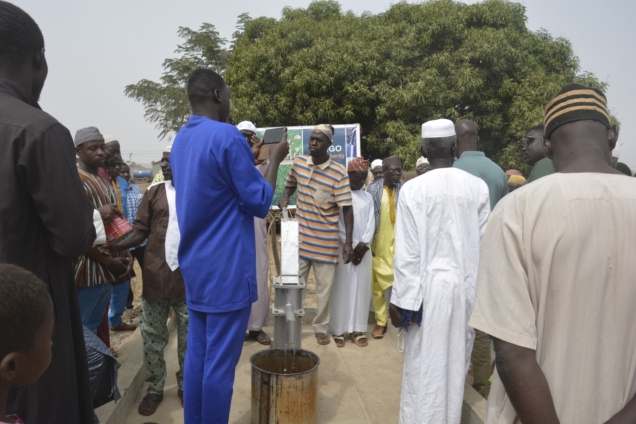Two Non-Governmental Organisations (NGOs) have stepped in to assist residents of Nantong-Zuo in the Northern region following a water crisis highlighted by JoyNews.
The Zango Water and Charity Project has commissioned a borehole to provide the residents with access to clean water, while Green Gold Enterprise has constructed a mechanised water system to ensure a reliable source of quality water.
These initiatives are a crucial lifeline for the community, which has been grappling with the challenge of relying on a single contaminated dam for several years. Residents have endured significant hardships due to the scarcity of clean water sources.
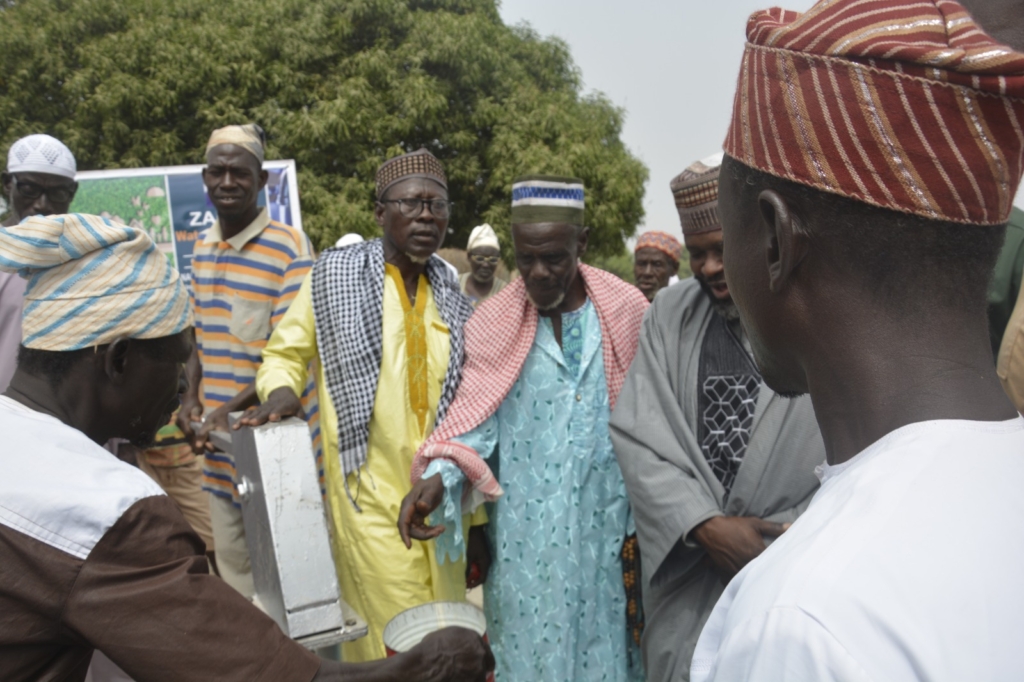
The contaminated dam, the sole water source, posed serious health hazards to the community, resulting in the spread of waterborne diseases.
There have been reports of various health issues, including cancer, infertility, and kidney problems, attributed to the consumption of water from the polluted source.
Background On February 23, 2022, a resident named Fuseini Zakaria passed away due to kidney problems believed to have been caused by drinking contaminated water. However, there were no hospital records to confirm these claims.
JoyNews journalist Mahmud Mohammed-Nurudeen, who reported extensively on the community, needed evidence to support the residents' case.
A water sample was collected on June 22, 2022, and sent to the Ghana Water Company's quality assurance department in the Northern Region for testing. The analysis confirmed that the water source was not safe for drinking.
The Manager of Regional Water Quality Assurance, Sulemana Alhassan, explained that, "From the physical appearance, it's clear that the water is not suitable for consumption. However, we cannot simply show people the sample and expect them to understand. The best approach is to analyse the water and present the findings in a data form, which is exactly what we have done."
Mr Alhassan further elaborated that the water's physical appearance, chemical composition, and microbiological content are all unsatisfactory.
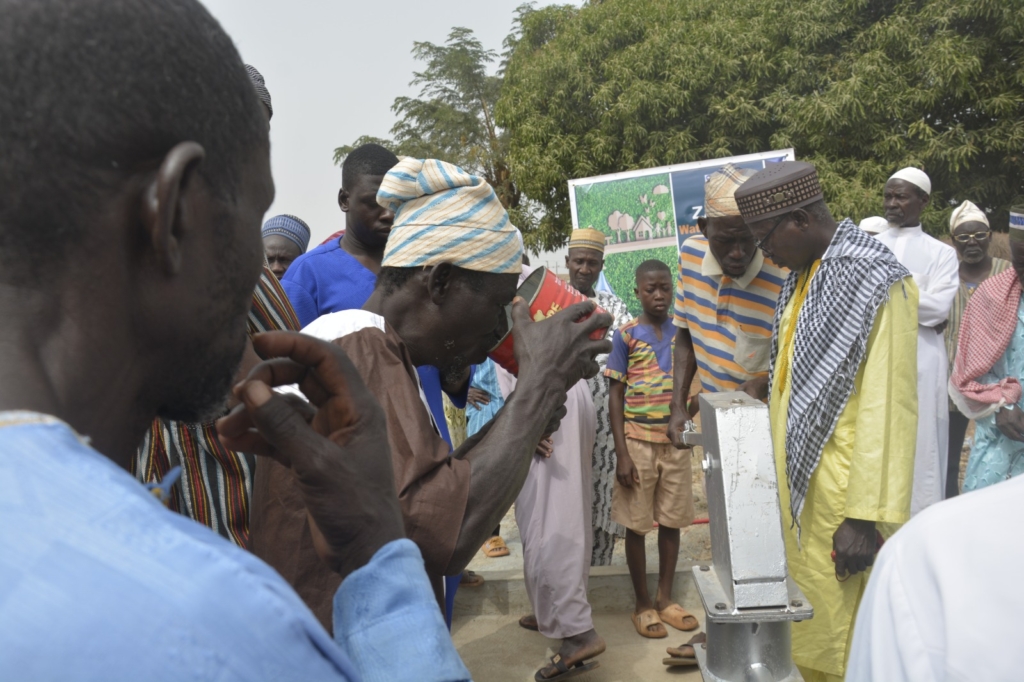
The analysis showed that it is not possible to accurately quantify the microorganisms in the water. Dr Akis Afoko, a consultant urologist overseeing the Tamale Urology and Modern Surgical Centre, who examined some residents, expressed concern about the alarming cases.
Dr Afoko explained that human waste contaminates the water through a faeco-oral transmission, leading to a high bacterial load. This makes the water extremely unsafe for the community, resulting in severe diarrhoea cases among residents, including schoolchildren who may miss school due to illness.
He emphasised that salmonella in the water can cause serious health problems, even if used for washing vegetables. Consuming this water can lead to severe complications, as seen in the case of the late Zakaria, who suffered from kidney problems that eventually led to his death.
"It's a very common cause of peritonitis, which has a high serious morbidity and high mortality rate. Salmonella in the water means that even if you use it to wash vegetables, you will encounter problems. Drinking this water can lead to serious problems,” Dr Afoko said.
Dr Afoko highlighted the challenges of kidney failure coupled with diarrhoea, which can cause dehydration and electrolyte imbalances. This combination can lead to irreversible conditions and has serious consequences for affected individuals.
In Zakaria's case, this resulted in chronic kidney failure. Dr Afoko emphasised the inability to control pollutants entering the water body, including pesticides and weedicides from upstream spraying, which contribute to water contamination.
Usually, cancers like these appear in people aged 60 to 70, but in this community, individuals as young as 20 are reaching advanced stages, making surgery ineffective. Additionally, there is a high incidence of kidney stones affecting people of all ages, including a 7-month-old child.
Renal failure is also prevalent, with younger individuals experiencing these health issues. Dr Afoko mentioned congenital malformations, such as undescended testes and improperly formed penises in children, as additional concerns documented in the community.
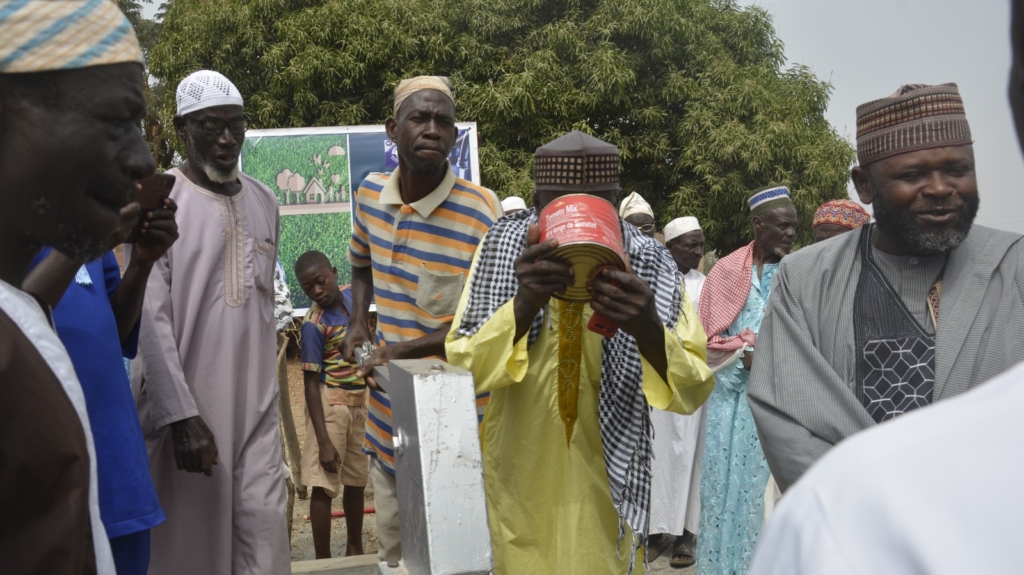
2000 litres Green Gold Enterprise Water Project
Green Gold Enterprise constructed three boreholes, two of which are mechanised, collectively producing 2000 litres of water per day.
"While this output is not yet sufficient to meet the water needs of over 1,200 residents in the area, it represents a crucial starting point," Founder of Green Gold, Clement Matorwmasen said.
He said unlike the previously used dam water, the water from the boreholes is safe to drink, significantly reducing the time women and children spend collecting water from 1.5 hours to just 15 minutes.
In addition to improving accessibility, Green Gold Enterprise's efforts have also helped reduce the negative effects of drinking contaminated water in the community. Their solution ensures access to safe drinking water for a large portion of the population, benefiting 200 individuals.
Clement emphasised that this achievement wouldn't have been possible without the invaluable support of their funding partner, the Grundfos Foundation - PDJF.
"Their contribution has been instrumental in making strides towards our goal of providing a sustainable and reliable source of safe drinking water for the Nantong Zuo community."
The organisation, along with its partners and in collaboration with community members, pledges to continue working on enhancing access to safe drinking water in rural communities.
Zango Water and Charity Project (ZWCP) Manpower Borehole The commissioning of the mechanised borehole by ZWCP complements efforts to provide clean water to the residents, courtesy of the organisation and their partners dedicated to relieving rural communities.
"When we saw the story on JoyNews, we were overwhelmed by the fact that people still drink from polluted sources," stated Representative of ZWCP, Ewura Baba Al-Hassan, in an interview with JoyNews.
Exactly a year after the story aired on TV, ZWCP constructed the borehole for the people of Nantong-Zuo.
The organisation emphasised their use of a special underground water detector to ensure the water's safety.
The borehole is poised to significantly improve the lives of many in the area and enhance their livelihoods. It will also provide them with the peace of mind of using it without the fear of contamination-related diseases.
Relief Brings Smiles, renewed hope to Nantong-Zuo Residents The residents are now smiling thanks to the relief provided by the Zango Water and Charity Project and Green Gold Enterprise. These organisations, renowned for their humanitarian work, recognised the community's hardships.
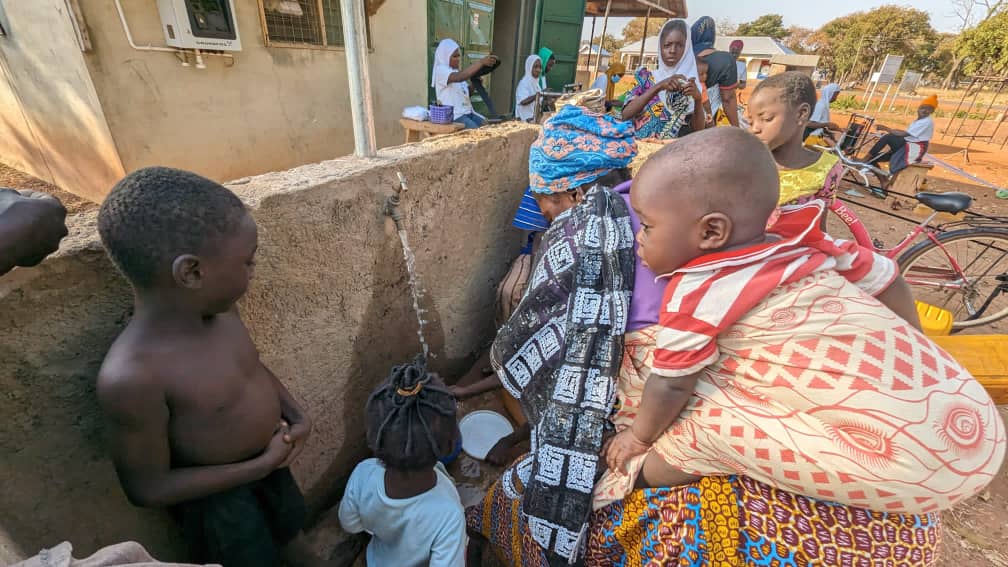
The residents of Nantong Zuo came together to express their heartfelt gratitude to the organisations. They appreciated the unwavering support from the Zango Water and Charity Project, Green Gold Enterprise and the commitment of JoyNews in broadcasting their stories, ensuring their voices were heard.
A younger brother of the late Zakaria, Fuseini Salifu expressed excitement about the intervention describing it as one the community has been expecting for several years.
“Good quality water has been a challenge for us – but this will wipe out our tears and bring back life normalcy,” he said.
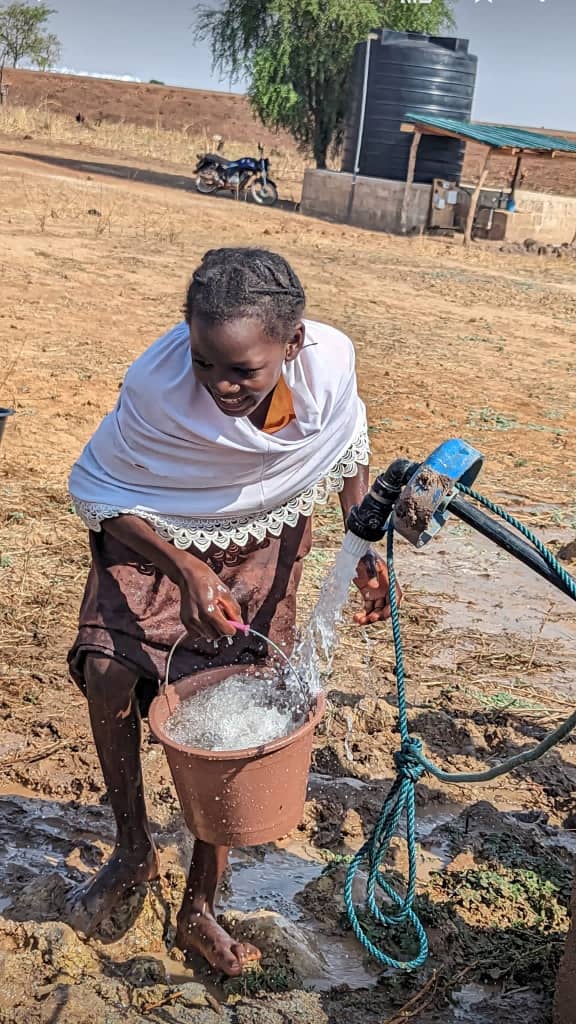
The residents are still looking forward to several interventions to provide water and to completely address and reduce the pressure on those that have been constructed since nearby communities rely on the source.
UNEP resolution on better management of aquatic ecosystem The United Nations Environment Assembly recently passed a resolution urging countries to manage aquatic ecosystems better and work together on water to support sustainable development.
Leticia Carvalho, who heads the Freshwater and Marine Ecosystems Branch at the United Nations Environment Programme (UNEP), emphasised the need for innovative ideas, political commitment, collaboration, and increased funding to ensure that everyone has access to clean water.
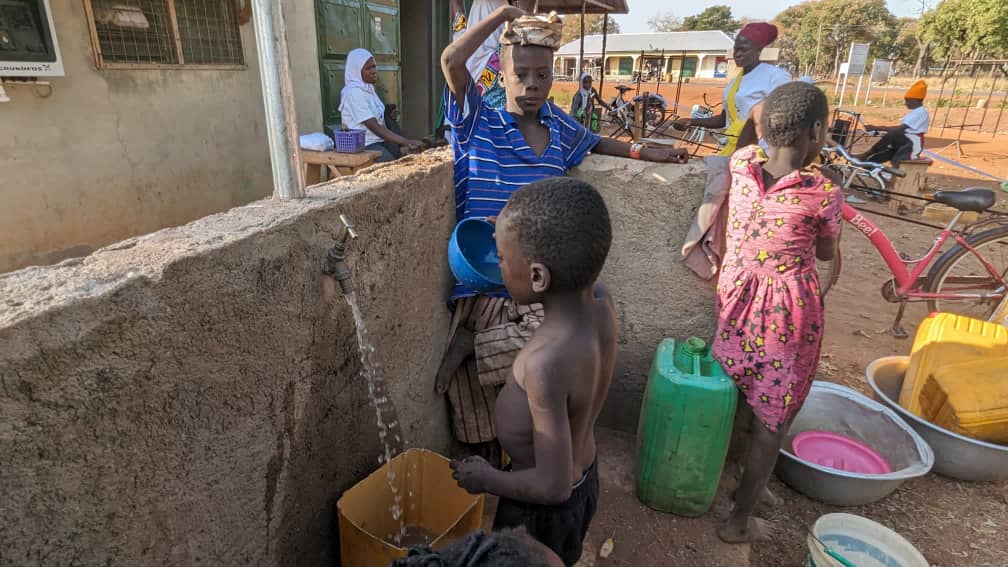
“But we need innovative thinking, greater political commitment and collaboration, and increased financing so that when it comes to water, no one is left behind.”
World Water Day, observed on March 22, highlights the global water crisis caused by various factors like climate change and faulty pipes. Despite water being abundant in some places, it's often too polluted for drinking or other uses, similar to the situation in Nantong-Zuo.
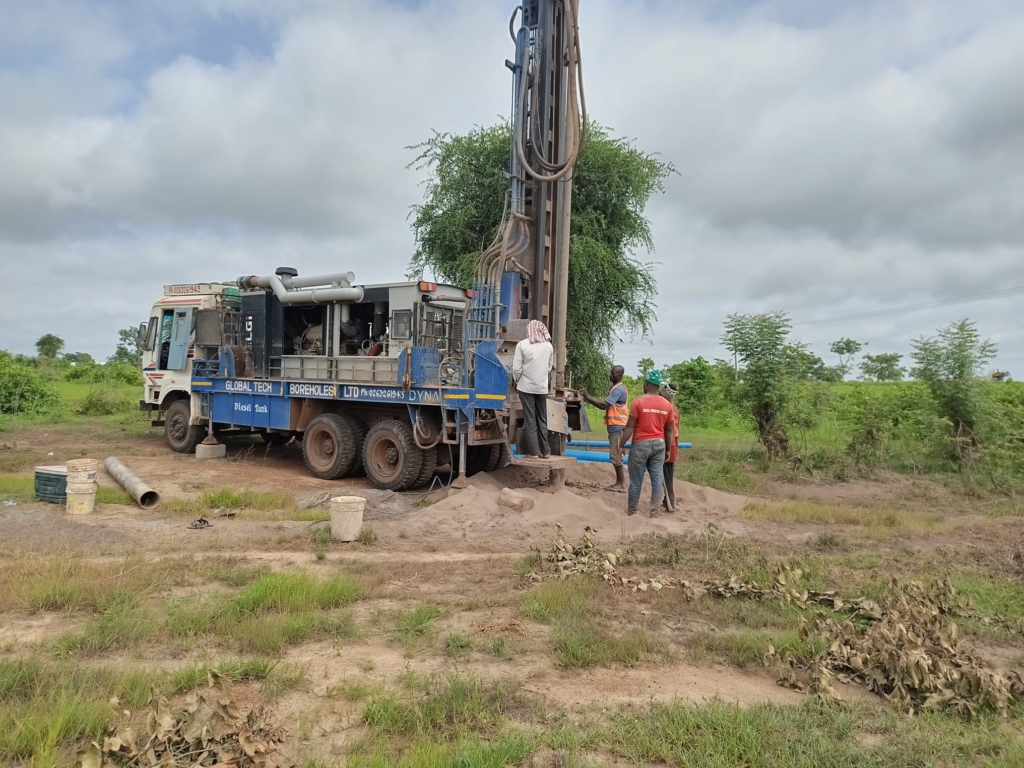
Assessing water quality helps policymakers prioritise cleaning efforts, and this can be aided by satellite data, AI, and citizen science. UNEP's Freshwater Ecosystems Explorer provides decision-makers with data to take action and safeguard freshwater ecosystems.
Latest Stories
-
Paris 2024: Opening ceremony showcases grandiose celebration of French culture and diversity
3 hours -
How decline of Indian vultures led to 500,000 human deaths
4 hours -
Paris 2024: Ghana rocks ‘fabulous fugu’ at olympics opening ceremony
4 hours -
Trust Hospital faces financial strain with rising debt levels – Auditor-General’s report
5 hours -
Electrochem lease: Allocate portions of land to Songor people – Resident demand
5 hours -
82 widows receive financial aid from Chayil Foundation
5 hours -
The silent struggles: Female journalists grapple with Ghana’s high cost of living
5 hours -
BoG yet to make any payment to Service Ghana Auto Group
5 hours -
‘Crushed Young’: The Multimedia Group, JL Properties surprise accident victim’s family with fully-furnished apartment
6 hours -
Asante Kotoko needs structure that would outlive any administration – Opoku Nti
6 hours -
JoyNews exposé on Customs officials demanding bribes airs on July 29
7 hours -
JoyNews Impact Maker Awardee ships first consignment of honey from Kwahu Afram Plains
8 hours -
Joint committee under fire over report on salt mining lease granted Electrochem
8 hours -
Life Lounge with Edem Knight-Tay: Don’t be beaten the third time
8 hours -
Pro-NPP group launched to help ‘Break the 8’
8 hours

